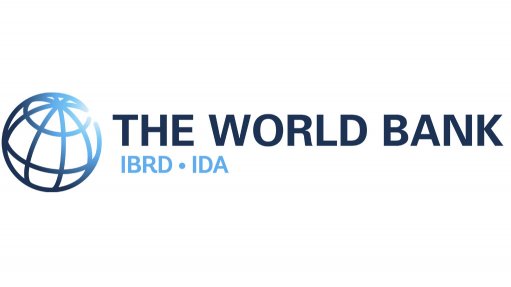Light a penny candle
Four years ago, I went to Zambia, to the Zambezi river, to fish for tiger fish. The fishing camp was exquisite, the food great and the fishing good (my fellow fishermen were the usual bunch of no-hopers who do not get out enough and behave like schoolboys when they do. Ah, well).
The guide addressed us on arrival: ”Welcome! Here we can see the birds, take the game tour, go fishing and . . .” and he added as an afterthought: “. . . take a tour of the village”. You could tell that the latter did not happen much. It stuck in my mind.
On the fourth day of the tour, I told the guide, hey, I want to go on the tour. There was surprise but, duly, I was taken to the village. I had expected the usual ‘township tour’, which relies heavily on one having to cough up for impromptu entertainment performances, but this did not happen. I was shown the barber shop, the butcher (who sold goat meat), the baker (who baked buns on corrugated iron over a fire – delicious), the blacksmith, the school, and so on. In the whole village, of about 600 people, there was very little lighting. The school children, if they studied, did so during the day. At night, it was paraffin lamps or, more widely, candles.
I thought about the problem. I could send a whole lot of solar-powered lamps to relieve the problem. What would happen? Would they be stolen? Broken? Sold? Wear out? I finally decided to experiment, so, when I was back back home, I bought four types of solar light and sent samples to the village by a safe courier. The next year, back fishing, I found that the lights we had given to the students (Unite to Light lamps) were still in use. The Consul jar lights were okay. The rest had failed or vanished. Following this, I sent more lights to Zambia and, joining forces with Suzanne Cross, of the US, assisted in providing (and paid for part of) lights which were sent to northern KwaZulu-Natal.
Suzanne received this letter from Nkomo Primary School, in Hluhluwe, South Africa:
Dear Madam
I would like to pass my sincere thanks to you, Mrs Z and your donors about the solar lights you have donated to our school last year, 2013. They have made a huge difference to our school and, more especially, to our learners. In September, we had a grade 12 study camp that was organised inside the school. Sometimes we experience some problems of the power failure but for us it was easy because we gave learners these lights and they could continue studying.
Our school is deep in the rural areas and most of the homes are without electricity, and we gave these lights to learners during weekends so that they could be able to study at home. This improved grade 12 final results from 44.64% to 76.32%, thanks to your help. May our good God bless you and your donors.
Yours faithfully
PL Mhlongo (Principal)
Back in Zambia, the Consul jar lights are giving in, mostly since the batteries cannot be replaced – but I am dealing with that.
But, you know, this is not quite what we need. What is needed is the Volkswagen of solar lamps: no blow-moulded case with smart finish, no glass jars. Nothing that is constructed by that army of green people who claim to be making an item to “help the poor” but, when it is priced at R180, the item is unaffordable. What is wanted is the ‘penny candle’ of solar lights: a solar cell, a battery, a bright light-emitting diode and a holder. Something which has no plastic parts. Something dead simple. Something made of common other things which can be recycled. Robust. Weather resistant. Nothing that some fool makes up in the garage and then offers it ‘looking for sponsors’.
Here is the competition: the candle, the paraffin lamp. A paraffin lamp costs R4 to fill. Lasts, sparingly, two nights. Candle, same price, one night. Solar is much better. It should be something developed by government. It should be an absolute priority. Look at the Mhlongo letter: “[The soalr lights] improved grade 12 final results from 44.64% to 76.32%”. Says it all.
Comments
Press Office
Announcements
What's On
Subscribe to improve your user experience...
Option 1 (equivalent of R125 a month):
Receive a weekly copy of Creamer Media's Engineering News & Mining Weekly magazine
(print copy for those in South Africa and e-magazine for those outside of South Africa)
Receive daily email newsletters
Access to full search results
Access archive of magazine back copies
Access to Projects in Progress
Access to ONE Research Report of your choice in PDF format
Option 2 (equivalent of R375 a month):
All benefits from Option 1
PLUS
Access to Creamer Media's Research Channel Africa for ALL Research Reports, in PDF format, on various industrial and mining sectors
including Electricity; Water; Energy Transition; Hydrogen; Roads, Rail and Ports; Coal; Gold; Platinum; Battery Metals; etc.
Already a subscriber?
Forgotten your password?
Receive weekly copy of Creamer Media's Engineering News & Mining Weekly magazine (print copy for those in South Africa and e-magazine for those outside of South Africa)
➕
Recieve daily email newsletters
➕
Access to full search results
➕
Access archive of magazine back copies
➕
Access to Projects in Progress
➕
Access to ONE Research Report of your choice in PDF format
RESEARCH CHANNEL AFRICA
R4500 (equivalent of R375 a month)
SUBSCRIBEAll benefits from Option 1
➕
Access to Creamer Media's Research Channel Africa for ALL Research Reports on various industrial and mining sectors, in PDF format, including on:
Electricity
➕
Water
➕
Energy Transition
➕
Hydrogen
➕
Roads, Rail and Ports
➕
Coal
➕
Gold
➕
Platinum
➕
Battery Metals
➕
etc.
Receive all benefits from Option 1 or Option 2 delivered to numerous people at your company
➕
Multiple User names and Passwords for simultaneous log-ins
➕
Intranet integration access to all in your organisation

















